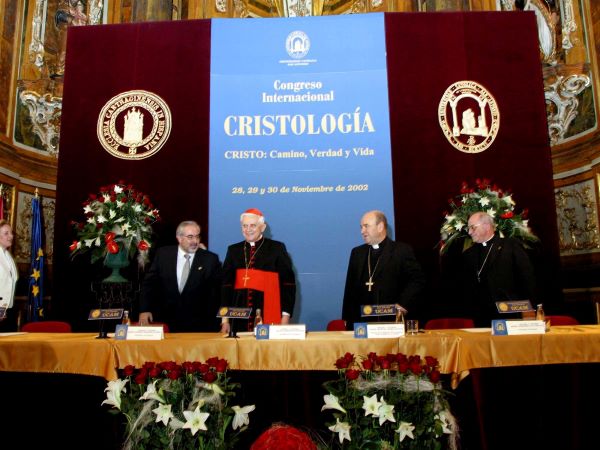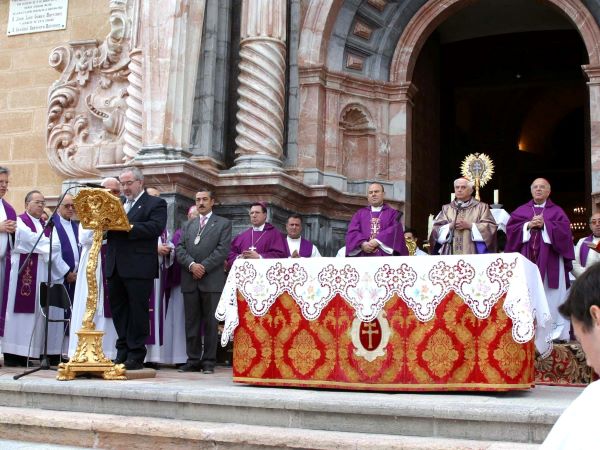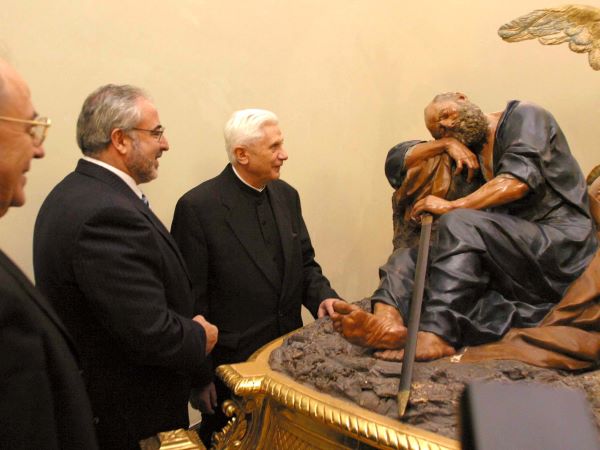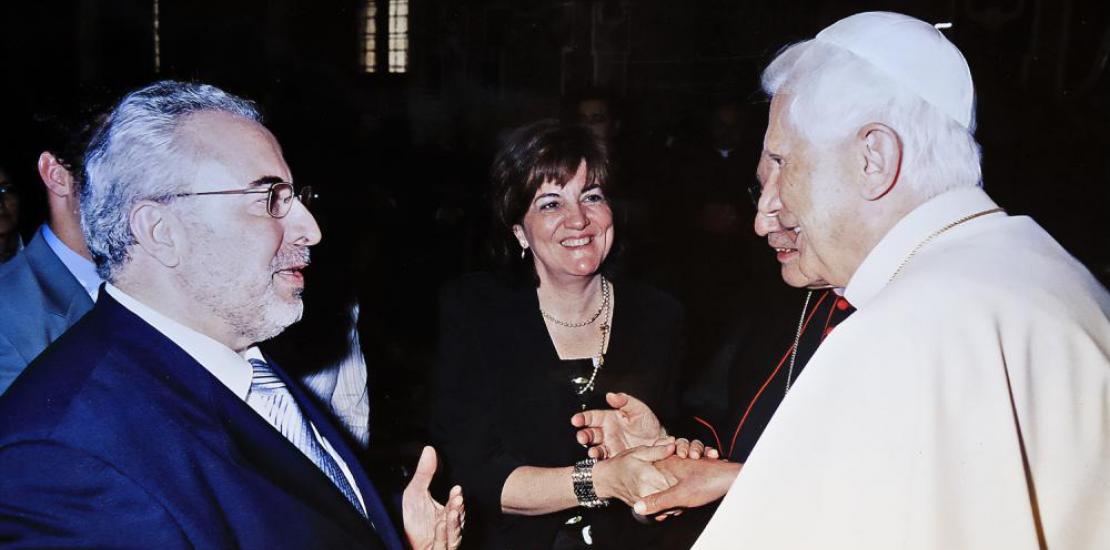‘Benedict XVI has joined the Holy Father; UCAM has an intercessor in Heaven’
‘We are deeply saddened by the terrible news of the death of His Holiness, Pope Emeritus Benedict XVI’. The president of Universidad Católica San Antonio de Murcia, José Luis Mendoza, sent a letter to Pope Francis this morning, in which he expresses, on behalf of the entire academic community and on his own behalf, ‘our most sincere condolences, joining you in your grief for such a sad loss. We pray to Our Lord and the Blessed Virgin Mary to receive him in their infinite mercy and hope he enjoys the company of the Angels and the Saints’.
At the request of the UCAM President, the flags of the University and of the Holy See at the Murcia and Cartagena campuses flought at half-mast, as a sign of mourning and until the funeral was held on 5 January. On Monday 9 January a funeral mass was held at 11am in the Temple of the Monastery of Los Jerónimos, thanking God for his ministry and his sincere appreciation of the Universidad Católica de Murcia.
![]()
José Luis Mendoza, and therefore the institution itself, has been in close communion with the three popes whose pontificate spans the period since UCAM was founded in 1996 until now: Saint John Paul II, Benedict XVI and Francis.
The relationship with Benedict XVI began even before he became Pope and continued on a regular basis throughout his ministry. In November 2002, when Joseph Ratzinger was Cardinal and Prefect of the Congregation for the Doctrine of the Faith, he presided over the International Conference of Christology 'Jesus: Way, Truth and Life’, organised by this institution at the Universidad Católica de Murcia.

At the conference he stressed the importance of the culture of dialogue, as ‘we cannot standardise the world, but rather recognise people's diversity and identity; we cannot impose on others to be like us with violence and from outside. The Christian can help everyone to learn the spirit of accepting others and achieve a fruitful and truly humane coexistence’. He also gave several thoughts on relativism, stating that ‘anyone who is not a relativist seems to be intolerant, to think that essential truth can be understood is itself considered intolerant. But actually, this exclusion of truth is a very serious kind of intolerance and reduces the essentials of human life to subjectivism’.
Cardinal Ratzinger said of UCAM that it is ‘an expression of the spirit of the Second Vatican Council. An institution that is so open to today's research and science, with such confidence in the power of faith, aiding in the development of the future’, and he encouraged the entire academic community to collaborate in the great dialogue, ‘based on the Catholic faith, thus opening up spaces for life and human development’.
At the end of the Conference, he signed in the UCAM Book of Honour with the following dedication: ‘May the Lord always bless this beautiful Catholic university in its work for a culture worthy of the name, based on faith in Jesus Christ, the source of Life and Truth’.

During his stay at UCAM, he gave lectures, talks at small meetings, was interviewed by its television station, Popular TV, and met with lots of
national and regional media outlets. Furthermore, during his visit, José Luis Mendoza seized the opportunity to take him to different places in the Region, such as the Salzillo Museum, where he admired the works of the Murcian sculptor, as well as to the closing of the Conference held in the Sanctuary of the Vera Cruz in Caravaca. Cardinal Ratzinger's meetings with UCAM president José Luis Mendoza, and his wife María Dolores García, were held later on at the Vatican, once Benedict XVI had been named Pope. They also met several times in Spain, for example, on the occasion of the World Meeting of Families in Valencia in 2006.





